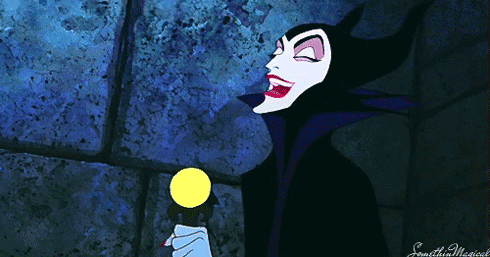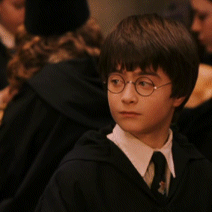Under the Empyrean Sky by Chuck Wendig
My rating: 4 of 5 stars
What did you say? Wendig calls it cornpunk?
(Scratches chin.) I like this. I like this a lot. This is going in a direction I can get behind.
Summary:
Corn is king in the Heartland, and Cael McAvoy has had enough of it. It's the only crop the Empyrean government allows the people of the Heartland to grow, and the genetically modified strain is so aggressive that it takes everything the Heartlanders have just to control it. As captain of the Big Sky Scavengers, Cael and his crew sail their rickety ship over the corn day after day, scavenging for valuables, trying to earn much-needed ace notes for their families. But Cael's tired of surviving life on the ground while the Empyrean elite drift by above in their extravagant sky flotillas. He's sick of the mayor's son besting Cael's crew in the scavenging game. And he's worried about losing Gwennie, his first mate and the love of his life, forever when their government-chosen spouses are revealed. But most of all, Cael is angry, angry that their lot in life will never get better and that his father doesn't seem upset about any of it. Cael's ready to make his own luck . . . even if it means bringing down the wrath of the Empyrean elite and changing life in the Heartland forever.
Review:
These days, dystopia YA is all the rage. One is born every time someone farts. Only half of them fit the definition of dystopia. (For definition, see my Divergent review.) Most of the ones I read don't make me bat an eye because I'm used to reading ones that have pretty much come true. You know, 1984 as brought to you by the internet, microchips, and the NSA. A true dystopia should make you scared. The nervous kind of scared where you think that it's not true, until you discover it could happen. Then you become a little paranoid.
Now take the 1% from Neill Blomkamp's film Elysium and drag them down into the Earth's atmosphere. Close enough where they can see the huddled masses, but not close enough to actually smell them. Break them up into separate flotillas that I imagine look a lot like Columbia from Bioshock Infinite, only more high tech art deco, and corporatize them. Think of Paolo Bacigalupi's torque run world from "The Calorie Man", "The Yellow Card Man", and The Windup Girl. Set it in middle America. Now hand that all over the Chuck Wendig. What you get is Under the Empyrean Sky.
Seventeen year old Cael McAvoy lives in a small town called Boxelder. He's the leader of The Big Sky Scavengers. He butts heads with his academic father, who he's angry at for being so passive, and wants to find a way out of the rut in life he's destined for. He thinks he's invincible. That's right. He's a teenage boy. A believable teenage boy. He swears, has sex, and drinks underage. No idealized hero here. No pretty boy Four Fears.
I admit that Wendig's characterization skills was what I was looking forward to the most. I read his Atlanta Burns stories, so I knew he could write teenagers, and not these perfect pretty teenagers you see in really popular YA either. Cael's friends are pudgy Rigo and over-the-top Lane.
Rigo hales from an abusive household, but is the tamer of the three. He's usually the one that tries to be the voice of reason until he gets outvoted by the other two. His favorite thing in the world is good food, and his friends have no problem making fun of him for it.
Lane is a bit more on the extreme side. He's more jaded and spouts what could be considered wild conspiracy theories. Sadly, he lives alone and has a tendency to drink a bit much. He constantly suggests that they should run away and join the Sleeping Dogs, a group of bandits. He is also a young closeted gay man, but you don't find out about this until you know him as a person.
And then there is Gwennie. She's the brains of the crew. She can fix anything. Gwennie is also the prettiest girl in town. While she fills the roll of Cael's sweetheart, she isn't incapable, but she's more apt to fall in line with the rules of the dystopian society. It's not that she isn't a fighter, she's just more realistic.
The Empyrean run the society. And I mean, run it. They decide where you work, who you marry, and what you grow. Even the monetary system is all theirs. Break the rules, and bad things happen. Most people work in processing plants for the local crop. The local crop, the only thing you're allowed to grow, is Hiram's Golden Prolific. It is literally blood thirsty, as in don't fall asleep among it or it might eat you. It's invasive and you can't eat it. It's used to make everything but food. (Sound familiar?)
Then there is Obligation Day. This is the day where you are paired with your future spouse. A Proctor comes down, hands you a certificate with names, and then leaves. That's it. The Heartlanders try to turn it into a ceremony, but it's really sad when you think about it. (This also adds a bit of a "love triangle" to the book, but is more realistic feeling since it's not The Friend-zoned vs. Incredibly Hot Dude.)
This brings us to the face of our oppressive society, Proctor Agrasanto. (Yes, that is a Monsanto dig, but could you really blame Wendig?) She's just your typical henchman in the long run. She hates her job and views the Heartlanders and uncivilized trash; dirty, disgusting, and not worth her time. While this view point is ultimately her downfall, we'll probably see her again.
As for the writing, it's in Wendig's third person present style. When so many YA dystopias I've read have been written in first, it's a nice change of pace to move between characters. It still moves at a quick pace, but the words and descriptions are cleaner than his adult work. (He wanted to write a book his kid could read.) The paring down of his signature language doesn't take away from his vivid descriptions. Take this little paragraph from early in the novel:
"It's the same dream every night. He flies low over the endless corn, the stalks swaying not with the wind but because that's how the corn is: it drifts and shifts and twitches, leaves whispering against leaves, tassels like reaching hands. The sky above is so pale it looks as though someone squeezed the color out of it, like a rag sitting too long in the sun." (p. 8)
It's succinct, uses sensible metaphors, and active verbs. It helps give his style a certain rhythm that runs the reader along.
Despite being the first book of a trilogy, it completes the first plot it introduces involving the mysterious vegetable garden, but leaves enough of a loose thread to continue the series. (Not telling you what. That would be a spoiler.) The story is also contained within the small down and a bit outside it which leaves Wendig the capability to explore the world more.
The book is also relatively short and a quick read. I read it in two days, much to my dismay. I wished it was longer, but that's just me acting like a fan. If Wendig added more, it would ruin the balance of the book. (Again, personal opinion.)
So, to sum it all up, read this book. It's got good characters set in a world with creepy, genetically altered corn and floating cities. Oh, and a male protagonist. How long has it been since you've seen one of those?
Now I'll just go have nightmares about the corn.
View all my reviews






